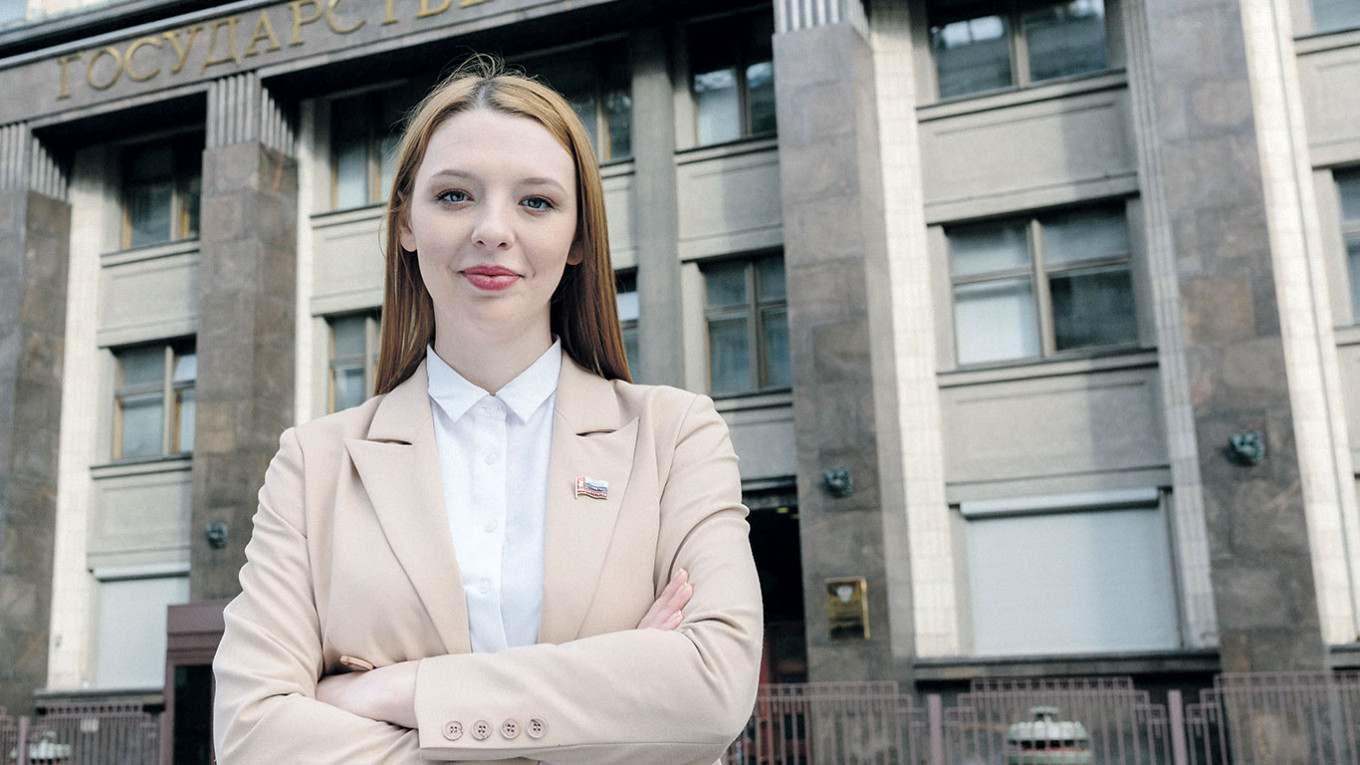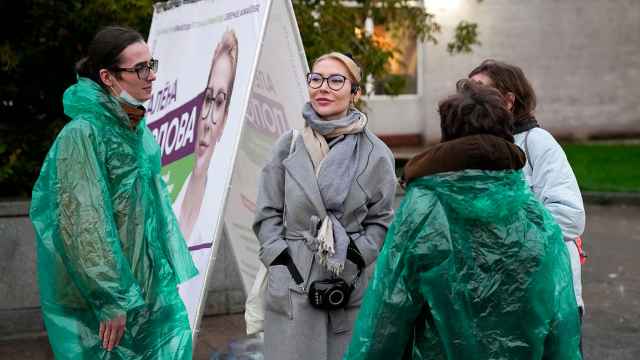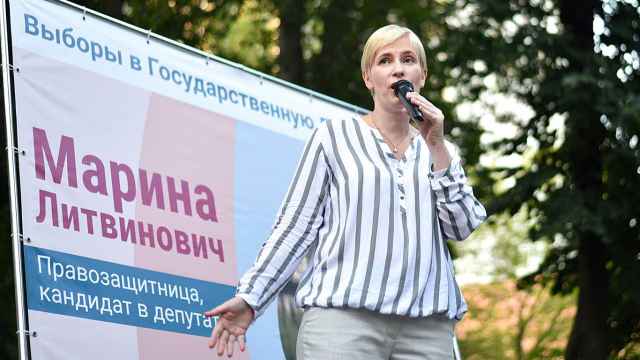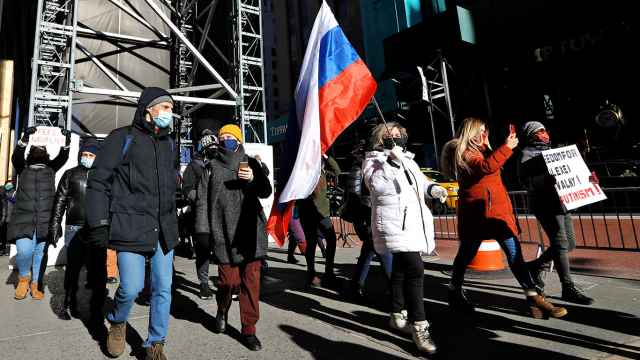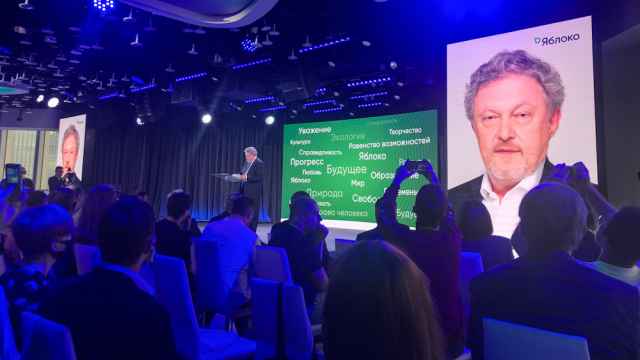After Moscow’s election authorities blocked Anastasia Bryukhanova from standing for City Council in summer 2019, she vowed not to back down.
Bryukhanova, now 28, was one one of more than a dozen independents barred when the election commission ruled the mandatory signatures she had collected were fake. Critics saw the decision as a move to keep strong independent contenders off the ballot, and Moscow was spun into a summer of protest.
Two years later, Bryukhanova is running for a seat in Russia’s national parliament, the State Duma, in Sunday’s election. She is the only independent opposition candidate in the country who has managed to make it onto the ballot.
“I always knew that candidates could be blocked for far-fetched reasons, but it's another thing to be in the middle of this absurdity,” Bryukhanova told The Moscow Times in an interview on the campaign trail in northwest Moscow.
“That experience hardened me — and taught me not to give up.”
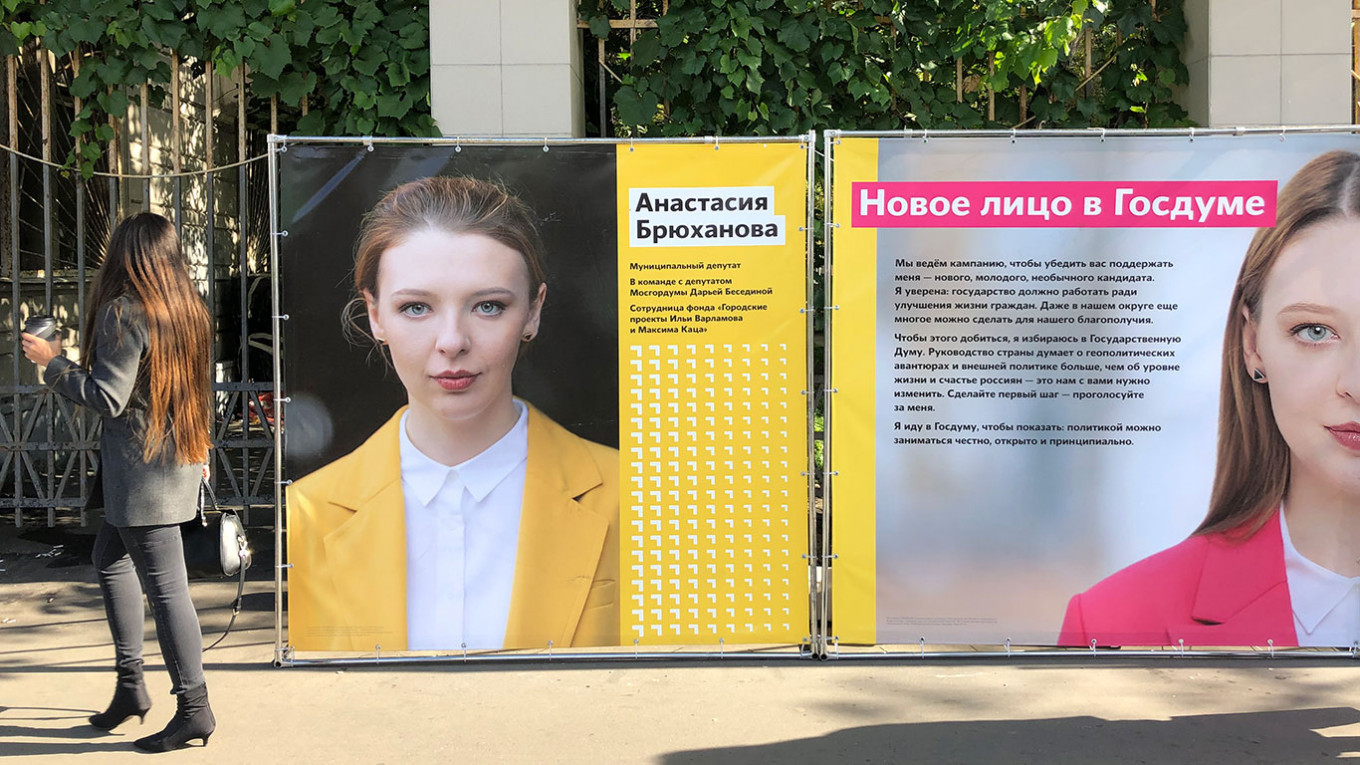
New generation
With her trademark look of a bright suit and white Adidas sneakers, Bryukhanova and her slick, well-funded campaign represent a new generation of Russia’s opposition — raised and educated in President Vladimir Putin’s Russia and politicized in the time of his harshest critic Alexei Navalny.
These are young adults who did not experience the fall of the Soviet Union and barely remember the social, political and economic upheaval of the “wild 1990s,” which Putin has used to forge a political agenda hostile to the very idea of reform. To them, Russia’s political institutions, and its leader, are showing their age.
“There is fatigue after 20 years of United Russia and 20 years of Putin. People are tired, there is a desire for freshness, something new and different,” Bryukhanova said. “Even if voters don’t fully support me personally, they still say they want change.”
Her longshot campaign to snatch a seat in Russia’s lower house of parliament, where she could become the only anti-Kremlin politician in the 450-strong chamber, is built on channeling this generational divide.
“The first time I voted was in the 2011 duma elections. I immediately saw that my vote was stolen from me,” she said, referencing widespread allegations of election fraud. “After that, it was impossible not to engage in politics.”
Bryukhanova attended that winter’s protests on central Moscow’s Bolotnaya Square — a landmark moment of the Putin era that is widely seen as ushering in an intensification of the Kremlin’s moves to repress organized political opposition.
After joining a trade union at university, she focused her political activities on getting broken street lamps fixed, before dropping out and being elected in 2016 at the age of 22 to one of Moscow’s small local councils.
Moscow’s City Duma was supposed to be the next step on the ladder of Russia’s legislative pyramid, but after being blocked from running — and as a rare member of Russia’s opposition without any criminal or administrative convictions — she jumped to the national stage.
Now she is running in Moscow’s affluent Leningradsky District — an opposition-leaning plush neighbourhood with half a million inhabitants. If she is to win in the first-past-the-post system, she says she will need to secure more than 50,000 votes in a fair count.
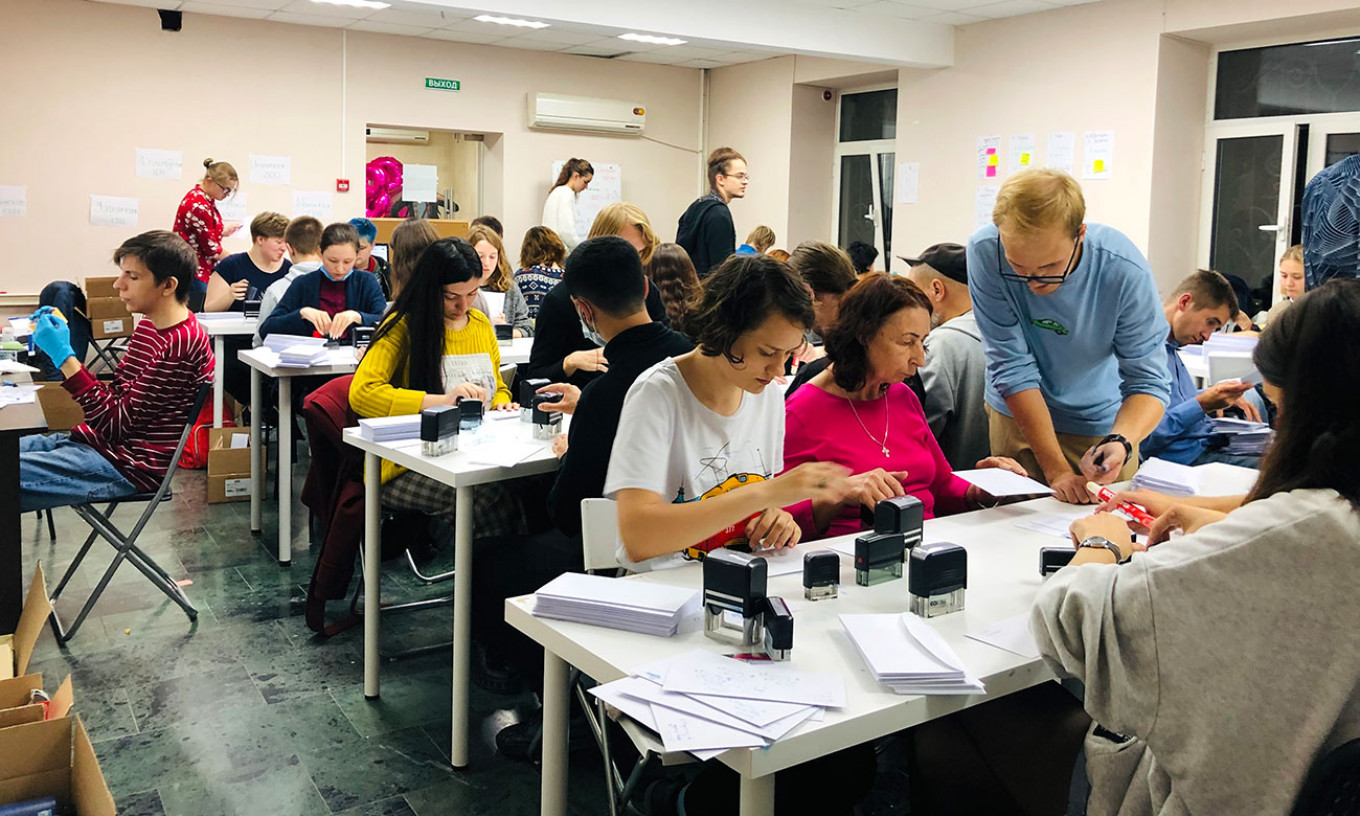
Modern campaign
Bryukhanova is overseeing a Navalny-inspired campaign from a sprawling colorful headquarters that are a far cry from the operations run by Russia’s older, usually male, politicians.
On a blustery midweek evening, scores of volunteers work past midnight to stamp envelopes and hand-write addresses for a mass mail-out ahead of polling day. Discarded pizza boxes and energy drinks are scattered across cheap Ikea tables, while the lobby is crowded with bright beanbags and a clutch of electric scooters stand behind a messy reception desk.
Next door, technicians prepare a multi-camera studio for that evening’s YouTube fundraising stream — a daily hours-long broadcast featuring Bryukhanova and other key campaign staff that mirrors the political live-streaming marathons first popularized by Navalny.
The style — a cross between tech startup, student dorm and U.S.-style political office — has proved attractive. Volunteers and staff — more than 1,100, according to aide Fedor Velembovsky — have flocked to join the campaign.
The key to the operation is its success in fundraising.
Bryukhanova said her campaign is set to raise 40 million rubles ($550,000) through crowdfunding and public donations — an all-time record for an independent candidate.
“It’s not that much. I’d love to be able to run an even bigger campaign,” she said.
Russian election law caps funding at 40 million rubles for candidates running in a single-mandate district. Bryukhanova spent half that amount on collecting the 17,000 signatures she needed to qualify to run — a mobilization drive that could help with the real vote.
Bryukhanova’s crowdfunding prowess has irked her liberal opponents, who say the financial support marshalled by her veteran, but divisive, campaign chief Maxim Katz, with the help of popular blogger Ilya Varlamov, have distorted the campaign.
“We’ve collected eight times less … we can’t run a campaign like hers, covering the entire district with campaigners,” said human rights lawyer Marina Litvonich, who is running in the same district for the liberal Yabloko party, which expelled Bryukhanova last year for factionalism.
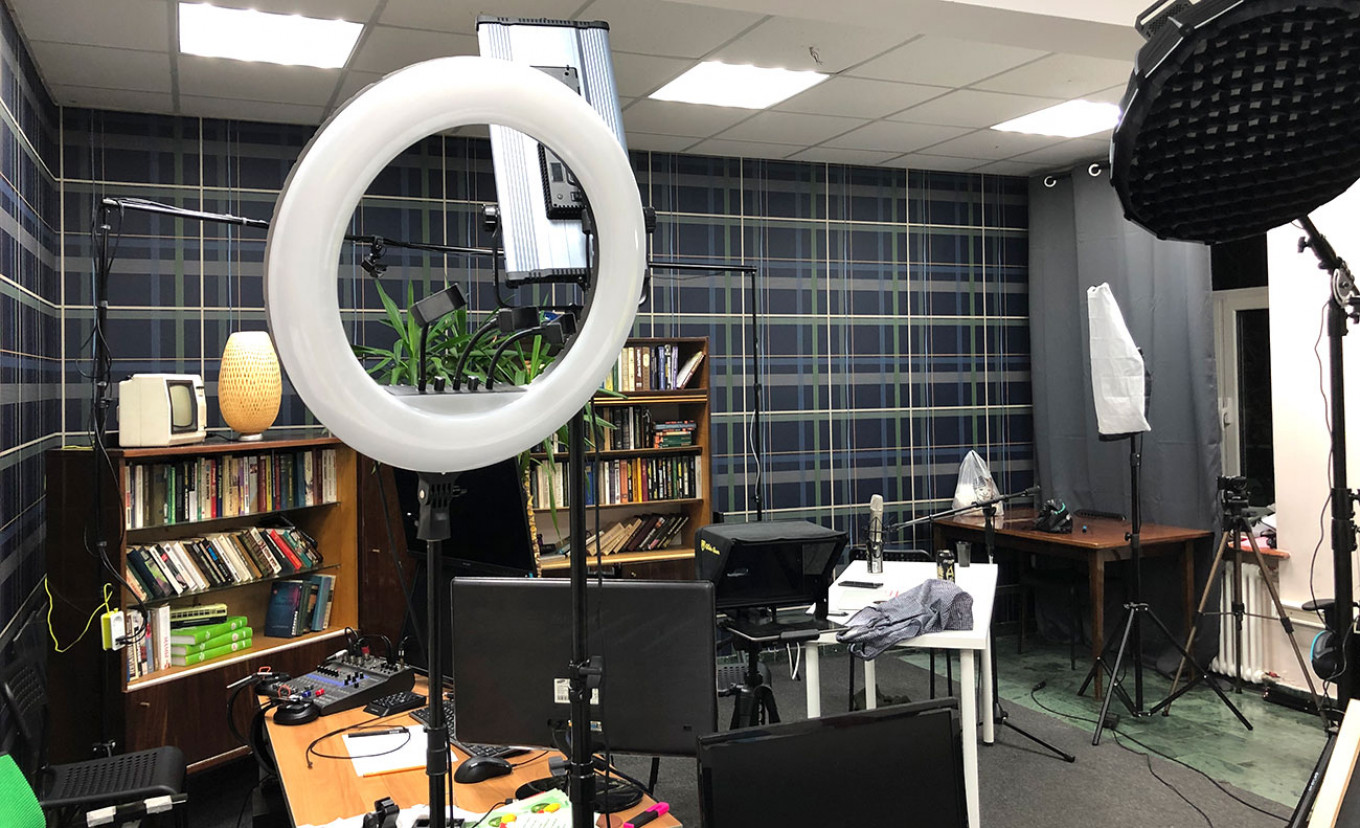
Testing ground
This kind of political operation was unthinkable in Russian politics when Bryukhanova was starting out in 2011. Experts point to the influence of Alexei Navalny.
“Navalny set a new bar for campaigning in Russia,” said Nikolai Lyaskin, a long-time Navalny organizer who worked on his 2013 campaign for Moscow mayor and his thwarted 2018 presidential bid.
“The most important aspect we introduced was working with volunteers and meeting people. Before Navalny, no politicians in Russia were holding meetings in courtyards or going around and meeting voters on the street every day.”
Navalny was the first Russian campaigner “to take a professional approach to politics,” said Jan Matti Dollbaum, co-author of a new biography of the Kremlin critic. “It was inspired by business-like procedures for HR recruitment and top-down organization, and U.S. presidential campaigns with offices, volunteers and strongly branded crowdfunding.”
Bryukhanova’s well-funded campaign has caused ripples among Russia’s divided opposition. As The Moscow Times reported, Bryukhanova and rival liberal Litvinovich have engaged in a terse war of words ahead of the vote, with both calling for the other to stand aside and ensure the anti-Kremlin vote is not split.
In her quest for office, Bryukhanova won a potentially vital boost on Wednesday, securing the backing of Navalny’s Smart Vote initiative — a tactical voting system which advises voters which anti-Kremlin candidate is most likely to win in their district.
But even with that endorsement, a slick campaign, thousands of supporters and millions of rubles, the chances of a genuinely independent candidate being elected to office in Russia are still remote, experts say.
But that doesn’t make running pointless, said Tatyana Stanovaya, founder of the R.Politik analysis firm.
“This is training, not a genuine election campaign. It’s good they are competing. You need to obtain skills, select staff, build a team and try different techniques. They’re investing in the future political generation — this is what’s important,” she said.
“Victory is of course the most important thing,” said Navalny’s former campaign chief Lyaskin. “But in the current political reality, it can be a success just to have a good campaign, to make sure people know about you and to have more supporters at the end of it than at the beginning.”
Bryukhanova insists she is in the race to win. Should she defy the odds, she hopes to force the Duma to start talking about issues it has long shunned, like the fate of Navalny, independent media and political prisoners.
“Everybody in society is talking about the repression — in their kitchens, on YouTube and social media — but nobody in parliament is.”
At half the age of the average Russian MP, Bryukhanova is impatient for change. But if she wants to achieve her manifesto of rolling back Russia’s authoritarian turn, she knows bigger challenges await.
“I feel really sorry for the person who comes after Putin,” she says, when asked who her ideal Russian president would be. “That’s a hell of a task.”
A Message from The Moscow Times:
Dear readers,
We are facing unprecedented challenges. Russia's Prosecutor General's Office has designated The Moscow Times as an "undesirable" organization, criminalizing our work and putting our staff at risk of prosecution. This follows our earlier unjust labeling as a "foreign agent."
These actions are direct attempts to silence independent journalism in Russia. The authorities claim our work "discredits the decisions of the Russian leadership." We see things differently: we strive to provide accurate, unbiased reporting on Russia.
We, the journalists of The Moscow Times, refuse to be silenced. But to continue our work, we need your help.
Your support, no matter how small, makes a world of difference. If you can, please support us monthly starting from just $2. It's quick to set up, and every contribution makes a significant impact.
By supporting The Moscow Times, you're defending open, independent journalism in the face of repression. Thank you for standing with us.
Remind me later.



